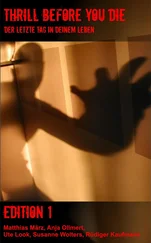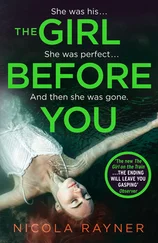Then, more times than not, he would focus only on his own agony, and he would grow scared. He wondered if it was actually possible to die of pain, if the body could ever reach a point when it said Enough! and just shut down. The nerves grew tired of screaming and begged the guys running the show in the brain to start flipping off the switches that ran the lungs and the heart and everything else that kept this mass of flesh and bone (some of it suddenly gone) breathing. In his stranger painkiller moments, those guys in the brain were retro cartoons of site foremen in a construction zone. They were caricatures with the pencil-thin arms and legs and boxy torsos he recalled from the Mad magazines he’d read as a boy, and their hands had so little definition that they looked like they were sheathed in mittens. Then, for brief moments, he would be a boy again in the suburbs of New York City, and he would forget that he had just had a sizable part of his right shoulder pureed by a bullet.
Still, even these fleeting distractions were not without danger. At least one time the mittens on those line drawings in the control room behind his eyes began to look an awful lot to Spencer like… pincers. And the very notion that there were people with pincers running the show instantly brought him back to those nights at the Steer by the Shore, and because of his newfound affinity for the crustaceans-deep inside his brain, didn’t he have pincers, too?-he would feel guilty. And then he would feel a cleaver the length of his body slamming into his own abdomen and chest, crushing the sternum and slicing his body in two.
Once when this happened he passed out. But other times his whimpering grew abruptly into a scream that sounded a lot to the nurses at their station like the word No!
Finally his need to be zapped by morphine outstripped his fear of moving the fraction of an inch that it would take to reach the button that would undam the drug in the plastic bag above him, and he prepared himself for the woe that awaited him when he slid his body a hair to his left. He gritted his teeth and was about to do it-really, really do it this time, he was going to make it, he was going to move-when he detected motion in the doorway. The light was changing. Someone was nearing his bed. It was that nice guy with the unruly mustache, the nurse who’d come on duty a couple of hours ago.
“You’re awake,” the nurse said, and he offered Spencer a smile.
He nodded, but he honestly wasn’t sure if he’d spoken.
“Well, this will knock you back out,” the nurse said, and he reached for the small dial-a wheel the size of a dime-that seemed to float on a tube that linked one of the intravenous bags to his arm. For the briefest moment Spencer thought that he was about to get what he wanted more than anything else in the world and he might have opened his mouth to say thank you if he hadn’t opened his mouth to scream instead-he was no longer merely a groaner, now he was a screamer, too!-because the nurse was not reaching for the dial with the fingers on his hand. No, where there should have been human flesh and a wrist emerging from his hospital whites there was instead a lobster’s massive, ocean brown crusher claw, and the nurse was using its sharp-as-shell crushing teeth to snip the clear tube that linked him with his morphine and his fluids and everything else that was, apparently, going to keep him alive.
HE WASN’T SURE whether this was a memory or a dream, whether he was waking or sleeping, but here he was now, once again jumping into a half-frozen creek in Scarsdale as a teenager to rescue a raccoon. The animal had been hit by a vehicle a few moments before the McCulloughs-his mother and his father and his sister were in the car with him-passed it, the creature a quivering lump at the side of the road. Spencer insisted they stop, and he climbed from the car. Not only was the raccoon still alive, but as soon as he got within three feet of it, the animal bolted into the thin strip of snow-dusted bushes and shrubs along the asphalt and slid down the embankment into the icy creek just below. Spencer slipped down the side of the hill after it, his parents yelling for him to stop, falling knee deep into the water and slush and thin skin of ice. He grabbed the raccoon off the rock on which it was cowering, wrapped it in his own snow jacket, and the four McCulloughs drove twenty or twenty-five miles to the only veterinary hospital in the county that was open that late on a Saturday afternoon. The doctor lectured him about rabies. He called a Fish and Wildlife officer. But the raccoon hadn’t had rabies, and in fact had escaped being mashed by a fender or tires (or both) with a mere broken leg. The creature lived, and a month later Spencer himself released the animal back into the woods.
He couldn’t have done any of it, he knew with a dispiriting clarity, with only one hand.
SPENCER WAS A LITTLE better by midmorning when he was settled in his new hospital room-a regular hospital room-and the Torquemada-like torture of being transported on a gurney was behind him. Around six thirty, almost at daybreak, they had informed him that there were a couple of bypass surgeries occurring that very moment, and within hours there would be patients who would need his ICU bed far more than he. Then they had sent him and his IV drips packing.
Now that the sun was high in the sky, he was no longer confusing his nightmares with reality. It was Monday, someone had told him, and he thought back on his family’s visit the day before. He had a vague recollection that he had tried to cheer up his daughter by saying something silly about Annie Get Your Gun, but he wasn’t sure if this, too, had really happened or whether it had merely been a part of a dream. He wasn’t completely certain what had occurred Saturday night when he’d wandered through the lupine toward the garden. He knew he’d been shot and that his daughter had pulled the trigger while aiming at what she supposed was a deer. But what he didn’t understand was where in the name of God his daughter had gotten a loaded rifle in the first place and what in the name of heaven would lead her to believe that shooting a deer was a good idea. At one point Catherine had started to tell him something (maybe, he decided, she had told him everything), but whatever explanation she had offered had been swallowed up both by painkiller moments and the pain of the injury itself.
He guessed it was approaching ten o’clock (though he didn’t dare turn his head to glance at the clock on the table by the bed), and so he figured Catherine and Charlotte would arrive any moment. A nurse-a woman this time who most assuredly did not have a lobster claw for a hand-had told him the surgeon would drop by this morning, too.
He didn’t know whether his mother-in-law or John or Sara or Willow would be coming to visit. He understood that he certainly wasn’t getting out of here today or tomorrow, and so he decided that what John and Sara did now would offer a barometer of just how serious this bullet wound was. If they went back to work in Vermont-perhaps after a brief visit this morning-that would be an indication that this injury might hurt like hell, but he was out of danger. On the other hand, if they planned on hanging around for a couple of days, then he might still have reason to worry.
About quarter to eleven he got his answer when the entire household arrived. He didn’t get to see them all at once, because the nurses on this floor weren’t allowing more than two people into the room. He recalled four and five people at a time crowding around him when he’d been in the ICU, and he wondered briefly if he really had been close to death yesterday and the hospital had wanted the whole family to be present-just in case. In any event, now his wife and his daughter were sidling into his room, and the first thing Catherine told him was that everyone was with them at the hospital. His mother-in-law and the Setons were downstairs in either the gift shop or the cafeteria.
Читать дальше











